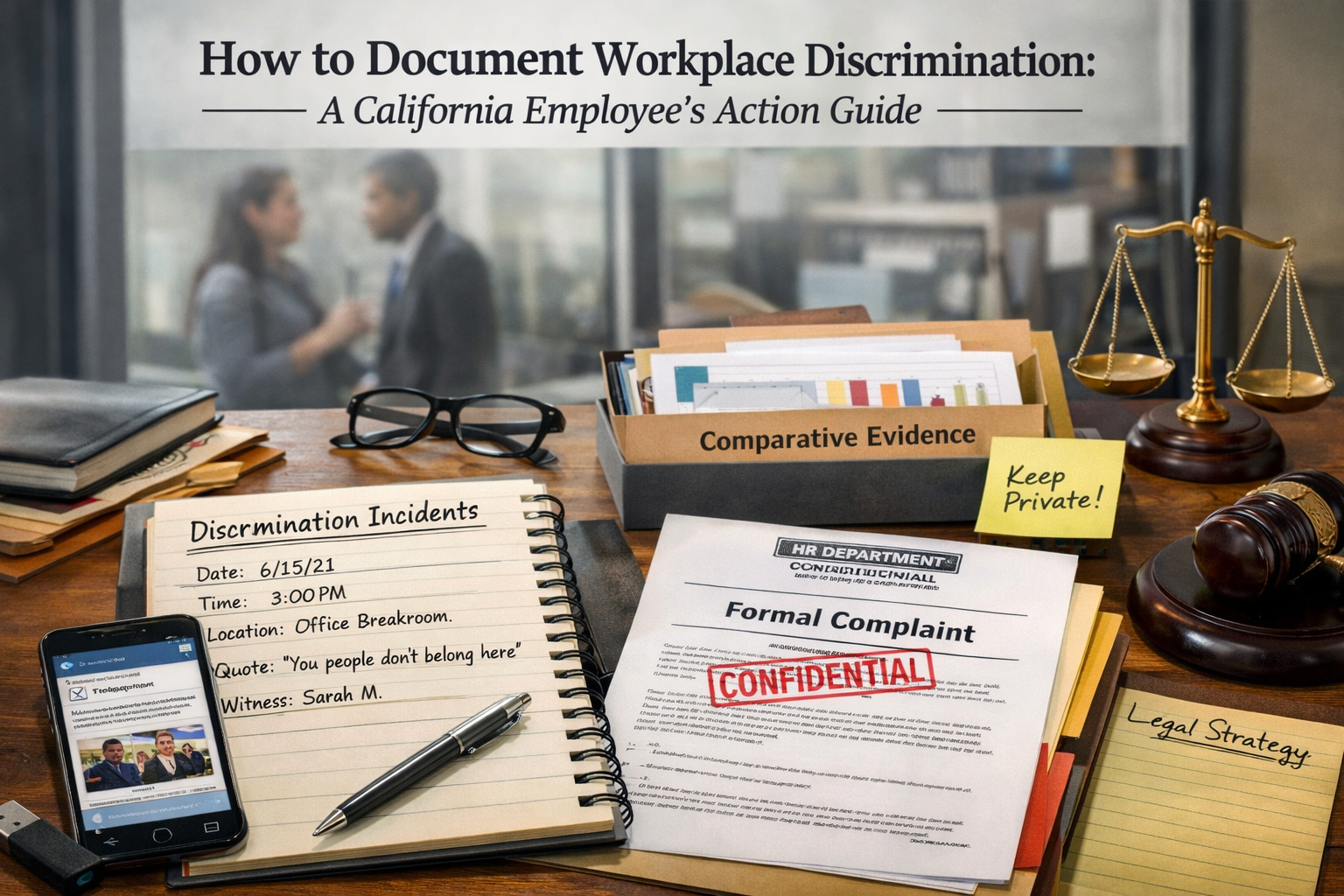
Employment Lawyers Protecting Your Rights
Are workplace issues making your life harder than it needs to be? You don’t have to put up with it. At The Law Offices of Todd M. Friedman, we fight for employees just like you. If you’ve been subjected to discriminatory practices, harassment, wrongful termination, or any other illegal treatment at work, we’re here to stand by your side.
Employment Law Practice Areas
With over 20 years of experience, our employment law attorneys specialize in defending employees against unethical employers. Whether you’re facing a hostile work environment, wage disputes, or retaliation for speaking up, you don’t have to face this alone. We’ve helped employees recover nearly $1 billion in settlements and judgments.
Protecting Employee Rights with Proven Results
Our team provides aggressive, expert advocacy across a range of workplace issues, including:
Wrongful Termination
Termination that violates legal protections or policies is not just unfair, it’s unlawful. We’ll fight to ensure you’re compensated for unjust firing.
Workplace Discrimination
No one should face unequal treatment at work. We’ll challenge discrimination based on race, gender, age, religion, disability, sexual orientation, or any other protected characteristic.
Workplace Harassment
Unwelcome conduct, including sexual harassment and hostile work environments, shouldn’t define your weekdays. We’re committed to creating pathways to justice for victims.
Wage & Hour Disputes
Unpaid wages, denied overtime, or being misclassified as an independent contractor can severely impact your livelihood. Our attorneys will fight to secure what you’re owed.
FMLA Violations
Being denied leave for family or medical reasons violates your legal protections. We’ll ensure your rights under the Family and Medical Leave Act are honored.
Retaliation & Whistleblower Cases
Reporting unlawful conduct should never compromise your livelihood. If you’ve faced retaliation for doing the right thing, we’ll ensure your voice is protected
Why Choose Us As Your Employment Attorneys?
Customer Reviews


I was wrongfully terminated and wasn’t sure what to do. Todd and his team took my case and made sure my employer didn’t get away with violating my rights. They fought hard, and I couldn’t have asked for better representation.

Peer Reviews


Industry Leader

Employment Law by Office
California: Los Angeles Employment Attorney
California provides some of the strongest employee protections in the nation, including expansive laws covering discrimination, harassment, wage and hour violations, retaliation, and whistleblower rights. As a seasoned Los Angeles employment attorney, Todd M. Friedman has spent over two decades holding employers accountable and helping employees navigate California’s complex labor laws with confidence and clarity.
Los Angeles, CA Office
23586 Calabasas Rd., Suite 105
Calabasas, CA 91302
Ohio: Cleveland Employment Attorney
Ohio employment laws protect workers from discrimination, harassment, retaliation, and wrongful termination, while ensuring fair pay and lawful workplace practices. As a trusted Cleveland employment attorney, Todd M. Friedman combines decades of litigation experience with a results-driven approach to help employees assert their rights and pursue justice against unlawful employer conduct.
Cleveland, OH Office
600 Superior Ave E, Suite 1300
Cleveland, OH 44114
Illinois: Chicago Employment Attorney
Illinois employees are protected under state and federal laws that prohibit workplace discrimination, retaliation, wrongful termination, and unpaid wages. Serving the greater Chicago area, Todd M. Friedman brings deep employment law experience and a proven record of results, providing strategic, client-focused advocacy for workers facing unfair treatment on the job.
Chicago, IL Office
707 Skokie Blvd., Suite 600
Northbrook, IL 60062
Pennsylvania: King of Prussia Employment Attorney
Pennsylvania employees have important rights under state and federal law, including protections against discrimination, retaliation, and wrongful termination. From the King of Prussia office, Todd M. Friedman delivers personalized, strategic representation backed by decades of employment law experience, empowering employees to stand up to workplace violations and seek meaningful outcomes.
King of Prussia, PA Office
840 First Ave, Suite 400
King of Prussia, PA 19406
Understanding the Employment Law Process
If something at work doesn’t feel right, you’re not alone—and you don’t have to figure it out on your own. Employment law cases often begin with small warning signs that escalate over time. Knowing what to do next can protect your rights and strengthen your case.
The Employment Law Process
- Recognize the Red Flags
You may notice unfair treatment, sudden discipline, harassment, retaliation, unpaid wages, or termination after reporting an issue. Trust your instincts—if something feels wrong, it often is. - Document Everything
Keep records of emails, text messages, performance reviews, pay stubs, schedules, and any incidents or conversations related to the issue. Documentation can be critical to protecting your claim. - Avoid Confrontation Without Legal Guidance
Before confronting your employer or HR, it’s important to understand your rights. Saying the wrong thing—or too much—can unintentionally weaken your position. - Consult an Employment Law Attorney
An experienced employment attorney can evaluate your situation, explain your rights under state and federal law, and determine whether your employer’s actions are unlawful. - Strategic Action or Formal Complaint
Depending on your case, your attorney may recommend internal action, filing a claim with a government agency, or pursuing legal action directly against your employer. - Pursue Resolution or Litigation
Many cases are resolved through negotiation or settlement, while others require litigation. Throughout the process, your attorney advocates for accountability, compensation, and justice.
Employment Law Resources
The Employment Law Resources page provides organized federal, California, and Los Angeles–specific support for workplace issues such as discrimination, wage and hour violations, whistleblower protections, harassment, wrongful termination, independent contractor rights, and employee privacy. It offers access to government agencies, legal aid organizations, and informative FAQs designed to help employees understand their rights, take action, and find appropriate legal support. The page aims to empower workers with clear guidance and practical tools to address workplace injustices and pursue justice.
Employment Law Blog Posts
Employment Law Guides & Whitepapers

I could literally write a book on how excellent Todd and his team are. He was proactive, relentless in fighting for a fair result in my case, and has amazing customer service. My case was lengthy but Todd kept me in the loop each step of the way. It was amazing that he actually took the time to reach out personally and I appreciate that. I’m definitely keeping his law firm in my contact book for future assistance. Thanks Todd, Megan, and his whole team.
Employment Law FAQs
Wrongful termination happens when your firing violates federal laws, workplace policies, or contracts. Discriminatory firings, retaliation for whistleblowing, or failing to honor employment terms are all grounds for a claim.
We offer a free initial consultation. Many cases are handled on a contingency basis, meaning you pay nothing unless we win your case. In short, we take employment law cases on a contingency fee so you don’t have to pay out-of-pocket or provide any expenses up front. There is no risk to asking our team how we can help you.
Document every incident in as much detail as possible and report the behavior through your company’s procedures. Then, consult an employment attorney to understand your legal options.
Wrongful termination occurs when an employer violates state or federal laws, workplace policies, or contracts, such as retaliating for whistleblowing.



















